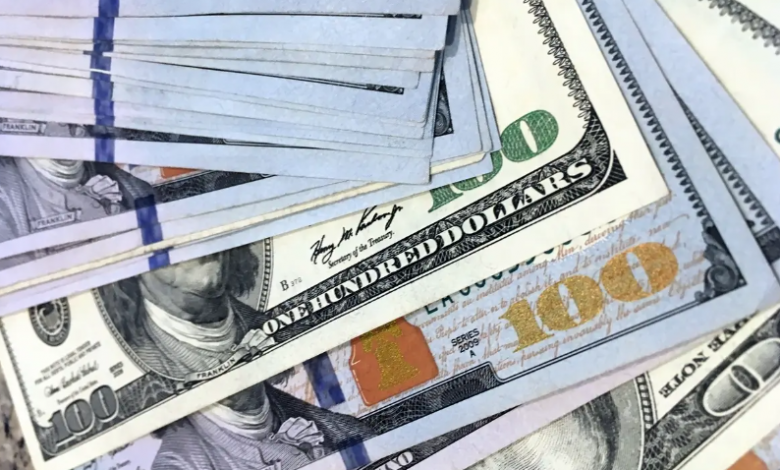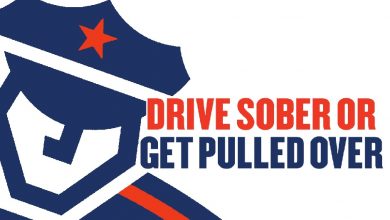Virginia couple accused of COVID relief funds fraud convicted, face decades in prison

The Covid-19 pandemic has caused unprecedented economic and social challenges for millions of Americans. To mitigate the impact of the crisis, the federal government enacted several relief programs to provide financial assistance to individuals and businesses affected by the lockdowns and restrictions. However, these programs also became targets for fraudsters who exploited loopholes and weaknesses in the system to steal billions of dollars from taxpayers.
One of the most abused programs was the Paycheck Protection Program (PPP), which offered forgivable loans to small businesses to keep their workers on payroll. According to a report by NBC News1, more than 100,000 PPP loans were potentially fraudulent, involving fake companies, identity theft, money laundering and organized crime. The Justice Department has charged more than 200 people with PPP fraud so far2, but many more cases remain under investigation.
Another program that was heavily exploited was the Economic Injury Disaster Loan (EIDL) program, which provided low-interest loans and grants to small businesses and nonprofits. The Small Business Administration’s inspector general has identified $78.1 billion in potentially fraudulent EIDL loans, involving false or inflated claims, ineligible recipients and duplicate applications. The Secret Service has opened hundreds of investigations into EIDL fraud across the country.
The fraudsters who abused these programs not only harmed the public finances, but also deprived legitimate businesses and individuals of much-needed relief funds. As Congress continues to oversee and audit these programs, it is imperative that law enforcement agencies pursue and prosecute those who committed these crimes and recover as much money as possible from them.
A Virginia couple was convicted earlier this for stealing $2.5 million in COVID relief funds. The Virginia husband and wife, now estranged, have both been found guilty of money laundering and bank fraud charges related to a complex scheme that saw them steal $2.5 million in pandemic relief funds. The pair indulged in a lavish spending spree, using the ill-gotten gains to purchase luxury cars, jewelry, and a grand estate in Loudoun County.
Didier Kindambu, the mastermind behind the operation, pleaded guilty to bank fraud in January 2021, confessing that he had submitted false payrolls to obtain $2.5 million in forgivable pandemic relief loans intended to cover employee paychecks. However, Kindambu’s partner-in-crime, his wife Rose-Marie Nsahlai, denied any involvement in the illicit activity, claiming to have been completely unaware of Kindambu’s wrongdoing.
Despite Nsahlai’s pleas of innocence, the evidence presented in court proved otherwise, leading to her conviction on money laundering and bank fraud charges. The duo’s criminal activity had serious consequences, not only for the financial institutions affected but also for the employees who should have benefitted from the forgivable loans. The case serves as a cautionary tale of how greed and deceit can lead individuals down the path of destruction, ultimately resulting in serious legal and financial repercussions.
The murkiness surrounding the investigation’s inception has come to light as IRS investigators have reported that they were initially puzzled by discrepancies in Kindambu’s loan application. The investigators became suspicious after examining spreadsheets that Kindambu had filed to support his loan application, which claimed that his company, Papillon, LLC, had a monthly payroll of over $700,000. Further investigation revealed that Kindambu had falsely claimed that the company had made over $600,000 in unemployment withholdings in 2019, a claim that could not be substantiated by any record found by the Virginia Employment Commission. The investigators’ suspicions grew deeper with each finding, leading to the eventual discovery of Kindambu and his estranged wife’s money laundering and bank fraud activities.
The discrepancies in Kindambu’s filing immediately caught the attention of IRS investigators, who launched an in-depth investigation into Papillon’s financial records. After a thorough analysis, it was discovered that Kindambu had indeed submitted fabricated payrolls, inflating the number of employees and the amount of wages paid.
In addition, it was revealed that the couple had used the stolen funds to purchase several luxury items, including expensive cars and jewelry, and to acquire a lavish home in Loudoun County.
Despite Nsahlai’s claims of innocence, evidence presented during the trial proved her involvement in the scheme, leading to her conviction. The couple’s actions not only betrayed the trust of the community but also took advantage of a program designed to help struggling businesses and their employees during the pandemic. The severity of their crimes highlights the importance of holding individuals accountable for fraudulent behavior and ensuring that relief funds are distributed fairly and transparently.
Finally, Kindambu claimed that he had withheld $2.5 million in federal income tax from employees in 2019. The IRS had no records of any payroll taxes paid by the company that year.
Kindambu filed two more applications for Paycheck Protection Plan (PPP) loans, under the monikers “Papillon Air” and “Papillon Air Maintenance.” In total, the loans he was approved for were about $2.5 million.
After Didier Kindambu was arrested for bank fraud and money laundering, his estranged wife, Rose-Marie Nsahlai, denied any involvement and claimed to have warned him not to use PPP loan for buying a luxurious home. However, she was later found guilty on all 5 counts against her, including editing spreadsheets related to the loan, making a recorded conversation admitting to knowing about the loan, and maintaining her innocence. She could now face up to 30 years in prison, with sentencing set for July 19th.




